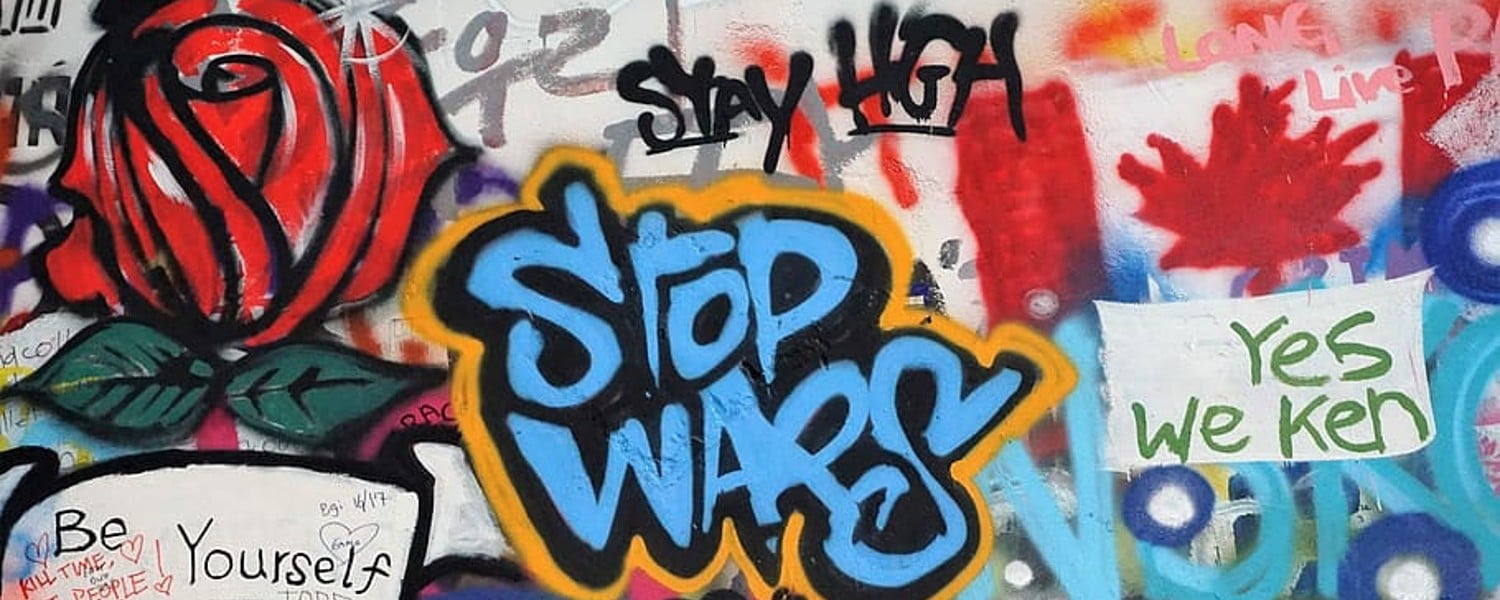Some thoughts on online whistleblowing
We live in a time when technological advancement far outstrips the ability of governments to regulate. And, as usual, given the spread of social networks and search engines, regulation will always be a local solution to a global problem.
Recently we’ve seen media initiatives emerge that do quantitative analysis on content circulated on Facebook and then report to the parent company Meta that the sites and influencers they discover violate “Meta community standards”.
This is a misguided solution to a real and very serious problem. Meaning? There are a few accounts and public figures in Romania that combine very interesting analysis with prurient and fantastical news. Oposition.net is one of them. It analyzes, sometimes with a very critical and documented sense, current trends that are not related to what they call “globalism”, but to neoliberalism and capitalism. The concentration of financial power in the hands of corporations, deregulation, the diminution of sovereignty as the ability of nations to govern themselves in favour of the increasing power of corporate economic agents: these are all analyses that fill a gap in critical analysis that we “intellectuals with pretensions” are rather reluctant to do.
The trouble is that, for example, analyses of the political economy of the pandemic campaigns – how much money was given, how contracts with pharmaceutical companies were secreted, cases of corruption related to the procurement of medical equipment, the actual organization of the fight against the pandemic – all these truthful elements are supplemented by the most insane information. You read, alongside rational criticisms of the political and economic organization of the fight against the pandemic, i.e. things that no one can deny, information about millions of deaths from the vaccine! A total fantasy.
It’s true, as I was saying, that on these platforms you read analyses about the dangers of deregulation and the diminishing ability of governments to tax multinational companies; blind obedience to the European Commission, even when other governments choose to negotiate. But then you get hit on the head with some mind-boggling solutions and information.
The world of these very successful platforms is dual. Everything problematic in today’s neoliberalism is about “globalism” – i.e. something bad – and the naysayers are, the good people, the “patriots”, led by the able leader… Donald Trump! It is precisely this great friend of corporations, precisely the one who gave them the biggest tax breaks, precisely the one who initiated the crazy rule that for every new regulation introduced, two others must be cut, precisely this champion of Davos whom the much-feared Klaus Schwab introduced in laudatory terms, thanking him on behalf of the business community for the tax breaks– well, it is precisely him who is the light of the patriots.
He is supposedly fighting the globalist hydra ready to destroy all things American and national. What role we Romanians play in this production is unclear. We are not the USA, but luckily there are journalists who occasionally reproduce, verbatim, ideas from articles in which Donald Trump is portrayed as a tragic hero, ready to be erased from history by the forces of evil.
Of course emotional attachments are strong. But we, as communication specialists, I think we need to be as cool as possible and treat all attempts at labeling and demonisation with great caution.
There is a real problem with misinformation. We have a choice between launching a public debate on how we regulate the information space and becoming vigilantes who report directly to Meta that certain accounts do not meet “community standards”. Those standards are not “community” standards. They are the standards of the social network owner. They are not ours, the community’s, because they have not been presented to us for debate. They were given to us as a condition of using the platform.
Instead of having a public and transparent discussion about how we can stop misinformation, we have people willing to legitimize efforts to report directly to the owners of Meta (the owner of Facebook) possible accounts that violate the standards of the “community” – i.e. the owner’s.
I don’t even know where to begin to explain how wrong this route is. Misinformation is a real problem that can sometimes have dramatic consequences. But the solution of doing quantitative analysis and advertising accounts and people in the position of experts is a very very dangerous move. First of all it circumvents the transparent democratic process. Second, those who participate in efforts to detect and combat “disinformers” are absolute judges. Disinformers do not have the chance to defend themselves, as in a court case. It’s not clear what law they are breaking. There are people who sincerely admire absolutely sinister authoritarian leaders. Is that illegal? Is it illegal to make your platform to support them? Look, there are people who admire Donald Trump. Not to mention Putin admirers. I repeat: is it illegal? Just to avoid a few very heavy discussions on:
- how do you tolerate the intolerant,
- how do you make the distinction and how do you mobilize state institutions, possibly secret services, to see who sincerely believes in the mentioned leaders and who takes money from various entities to support certain leaders,
- how you separate who believes parts of the speeches of the leaders mentioned, but may criticize other parts – and who takes their word for everything they say,
- how you unambiguously define “malice” in law,
- how do you punish misinformation without falling into authoritarian danger,
- how to reach real community standards, not rules imposed by the boss if you want to use his platform,
- how to distinguish between real enthusiasm and “bot” programs that only create the illusion of popularity – how to stop identifying them, how to stop their presence, how to answer if elections are influenced by such programs.
Well, precisely to avoid these difficult discussions, we opt to give legitimacy to the reporting of accounts and users directly to the company that owns the Facebook platform. As well as not giving “disinformers” a chance to defend themselves, it may well be that the measures taken against them are very perverse. In the Twitter scandal it was revealed that platforms can only change the sharing algorithm – the one we know the EU is working hard to force social networks to make public – but they can shadow-ban. That is, they can only reduce the “reach” – the number of people who see your posts. The “disinformers” may not even know that action has been taken against them.
As much as we loathe disinformers, these strategies are extremely dangerous because they bypass the mechanisms of democratic transparency, establish a culture of whistleblowing from elitist positions, cut off the chance for debate, imprison people on moral rather than legal grounds, give the owner of the social network the path to discretionary punitive measures and, worst of all, if political power shifts, other elites may well target us with the same kind of tactics.
Doing quantitative analysis and reporting to platforms that certain individuals and accounts do not meet “community standards” is also an outsourcing of verification work. I mean, naturally, the company should have a law about what kind of content doesn’t belong in the public space, a division of employees to track that content, even at the cost of limiting the amount of information you can post daily. We offer the chance to publish for the amount of content we can check. Even at the pool, you shouldn’t normally get more customers than you can provide security for. Besides, we can’t do Meta’s job. We run the risk that in the event of a change in political power we will be the ones targeted and labeled as “agents of the fallen West”, “godless globalists”, “demonic feminists” and more of the same.
Just as with the culture wars where a term like “trans exclusionary radical feminist”, TERF for short, can become an insult and a symbol of the odiousness of the person to whom it is applied, so labels like “pro-Trump propagandist”, “globalist propagandist”, “pro-Russian propagandist” can become real insults designed to legitimize hatred. Thus, in the absence of a very useful discussion about disinformation, we get stuck in the space of accusations and demonizations and contribute to the destruction of the social fabric. The only way is to understand that we are fellow citizens with people who sometimes worship leaders we would destroy, who have extravagant opinions on (to be mild), and who support causes that can sometimes mean danger for us all. Yes, but we have to live with them and we have to come to common ground with them when it comes to misinformation. To isolate ourselves in an ivory tower in which we consider ourselves the intelligent and educated privileged ones, who throw wisdom at the rudimentary people, is completely undemocratic and even very dangerous. We cannot delegitimize any criticism of power and the causes we believe in as stemming from the ‘far right’ or the odious nature of the person issuing it. This is a reflection of those who have lost faith that the state can provide the neutral space for dialogue and peaceful problem-solving. The solution to the problem of misinformation does not lie in the discretionary decisions of private companies, but in the ability of states to provide transparent and predictable legal ways of resolving the problems in question.
The Barricade is an independent platform, which is supported financially by its readers. If you have enjoyed reading this article, support The Barricade’s existence! See how you can help – here
Also, you can subscribe to our Patreon page. The Barricade also has a booming Telegram channel, a Twitter account and a YouTube channel, where all the podcasts are hosted. It can also be followed in Rumble, Spotify, SoundCloud and Instagram











